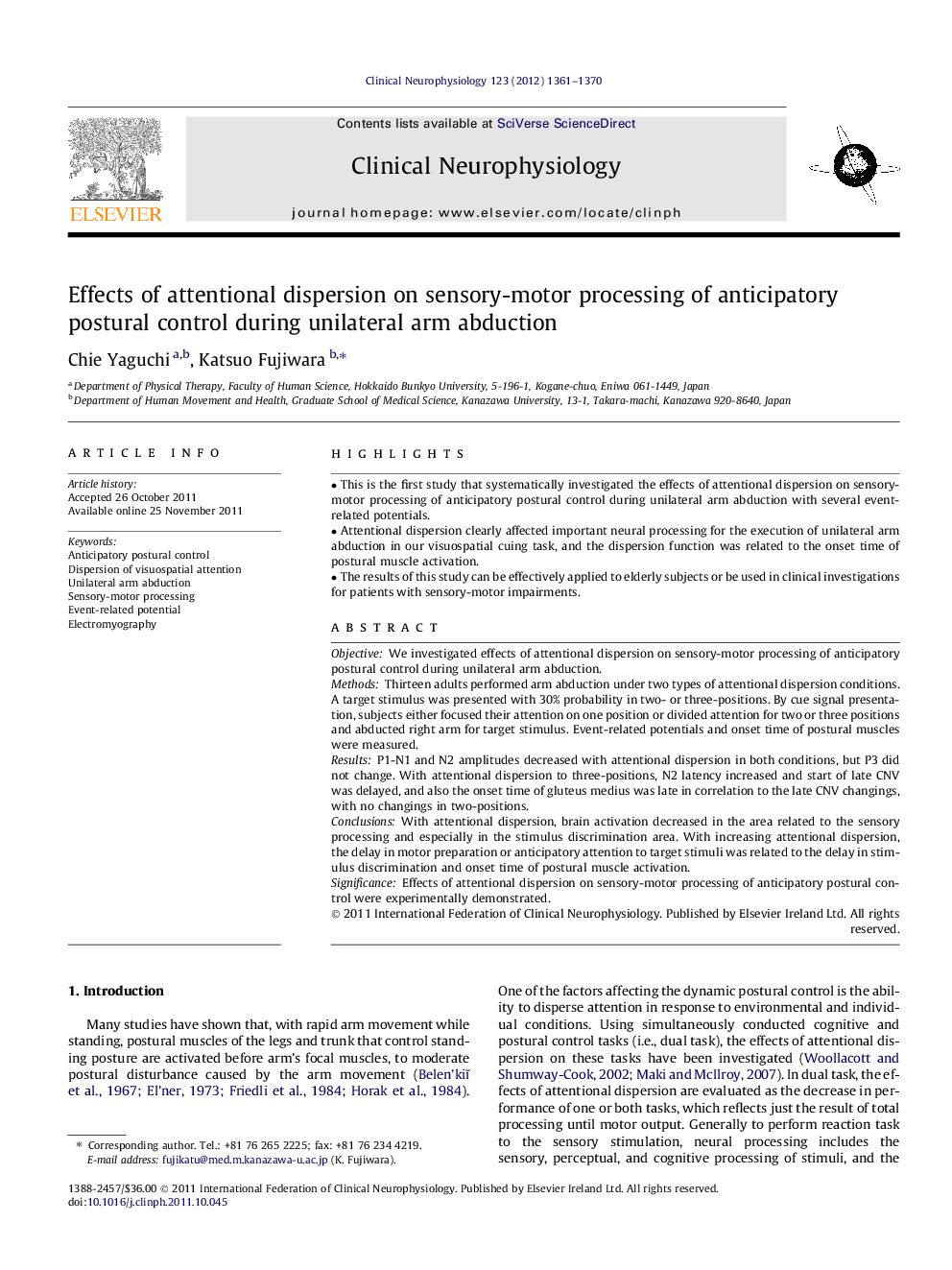| Article ID | Journal | Published Year | Pages | File Type |
|---|---|---|---|---|
| 3045499 | Clinical Neurophysiology | 2012 | 10 Pages |
ObjectiveWe investigated effects of attentional dispersion on sensory-motor processing of anticipatory postural control during unilateral arm abduction.MethodsThirteen adults performed arm abduction under two types of attentional dispersion conditions. A target stimulus was presented with 30% probability in two- or three-positions. By cue signal presentation, subjects either focused their attention on one position or divided attention for two or three positions and abducted right arm for target stimulus. Event-related potentials and onset time of postural muscles were measured.ResultsP1-N1 and N2 amplitudes decreased with attentional dispersion in both conditions, but P3 did not change. With attentional dispersion to three-positions, N2 latency increased and start of late CNV was delayed, and also the onset time of gluteus medius was late in correlation to the late CNV changings, with no changings in two-positions.ConclusionsWith attentional dispersion, brain activation decreased in the area related to the sensory processing and especially in the stimulus discrimination area. With increasing attentional dispersion, the delay in motor preparation or anticipatory attention to target stimuli was related to the delay in stimulus discrimination and onset time of postural muscle activation.SignificanceEffects of attentional dispersion on sensory-motor processing of anticipatory postural control were experimentally demonstrated.
